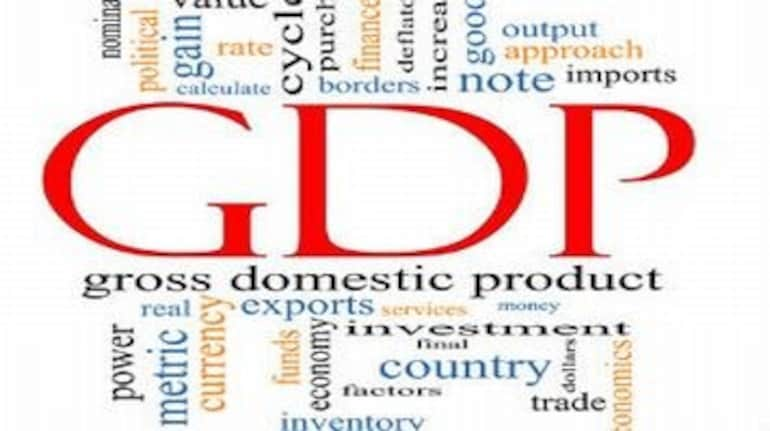



Union Budget expectation 2015-16 by GEPL Capital
Newly elected finance minister Mr. Arun Jaitley will going to his present first union budget for 2015-2016 on 28th February 2015. Mr. Narendra Modi led Indian government has lot of challenges to keep the harmony between fiscal deficit and GDP growth. Many of us are expecting 5.6% to 5.7% GDP growth for the fiscal year and also deficit to go down from 4.3% to 3.8%. Inflation which had been a persistent worry has finally moved to a downward path. The new government has taken a series of progressive policy measures aimed towards improving the business environment and giving a strong push to growth. The commitment of the government towards reforms has been reflected in its first Union Budget as well outside of it.
Expectations From The Finance MinisterIndian government should have more focus to give thrust to economic growth rather than controlling the deficit. The government initiatives like “Make in India” will help to achieve higher IIP growth and also will help to create more jobs. In a more conducive policy environment and optimal allocation of resources in the budget GDP growth is expected to move to double digit in the coming years. The forthcoming Union Budget should provide an opportunity to put in place levers to strengthen the demand situation in the economy. Rebated income-tax for small start-up businesses on lines of similar schemes in Singapore and China can be introduced. This will provide strong encouragement to small Start-ups and thus boost job creation.
Controlling Fiscal deficit by effective tax collecting mechanismIt is expected that fiscal deficit will likely to come down. One can expect fiscal deficit to be 3.6% for the fiscal. Government should focus on the spending as to give higher momentum to growth in the private sector and to small and medium businesses. It also very important for the Indian government to curb the losses caused by the unaccounted money. The Indian government to implement the effective tax collection mechanism which will help significantly to improve tax revenue.
Agriculture SectorAs per extant Service Tax laws the agro-sector has been supported by keeping a bulk of services relating to agriculture or agricultural produce in the negative List or in the list of exempted services. It is expected that other services like Warehouse Management Services, Security Services, and Laboratory Testing Services etc. should also be exempted from the service tax bracket.
Infrastructure SectorInfrastructure development is a pre requisite for the growth and development of any country. Infrastructure development is available in two ways i.e. to build altogether new infrastructure or to convert the existing structure by upgrading it and also enhancing the existing capacity. Both activities entail huge investment and human efforts One can expect significant amount of money to be invested in the segment. Since MAT (18.5%) has to be paid on book profit, the exemption would help with tax benefits under 80IA majorly. This will also give a newer boost to Auto and Auto ancillary segment by rise in the demand for commercial vehicles. Cement sector will also impact largely from the investment in the infrastructure segment.
Banking and NBFC SectorThe insurance industry has a long gestation period and it takes a long time to achieve a break-even. Accordingly, the limit of 8 years for carry forward and set off of business losses is not sufficient. Considering the importance of Insurance Sector for the Indian economy, it should be allowed to carry forward and set-off unabsorbed business losses for an indefinite period.
It is recommended that the threshold limit for deduction of TDS on interest other than interest on securities be increased from Rs. 10,000 to Rs. 100,000 where the payer is a banking company. Withdrawal of deduction has given a heavy blow to the co-operative banks which helped small and medium enterprises. It is recommended that the deduction in respect of income of co-operative banks under Section 80P of the Act be reinstated.NBFCs are vital channel for credit delivery especially to the under-privileged segments of the society, it is essential that discriminations of provision of bad debts or NPAs between NBFCs and banks be eliminated. This inconsistency may be resolved by including NBFCs/NBFC-MFIs.
Energy SectorMonetary Incentives reimbursement to State Electricity Boards / DISCOMs on fulfilling renewable, purchase, obligations and net metering purchase should be given to encourage the clean energy segment. Budget should have a provision that can support interstate concessional open access and banking for wind energy as the same is becoming difficult due to lack of suitable compensation mechanism.
IT and Service sectorService sector is one of the major contributor for the economic growth which likely to get attention from the government to sustain the growth momentum. There are expectations over concessional tax rate to encourage multinational companies to set-up back offices in India, which would generate employment and boost growth in the services sector. This will also help to generate taxpaying people.
Capital Goods‘Make in India’ campaign started by prime minister Mr. Narendra Modi will likely to impact positively to the manufacturing and capital goods segment. Higher capital expenditure initiatives from the central government are likely to be expected. In the budget one can also expect to give partial tax exemption on the capital goods manufacturing segment.
Disclaimer: The views and investment tips expressed by investment experts/broking houses/rating agencies on moneycontrol.com are their own, and not that of the website or its management. Moneycontrol.com advises users to check with certified experts before taking any investment decisions.
Discover the latest Business News, Sensex, and Nifty updates. Obtain Personal Finance insights, tax queries, and expert opinions on Moneycontrol or download the Moneycontrol App to stay updated!
Find the best of Al News in one place, specially curated for you every weekend.
Stay on top of the latest tech trends and biggest startup news.